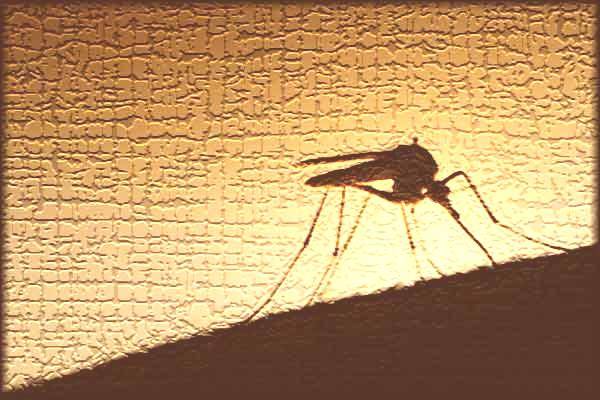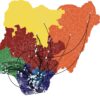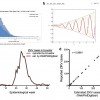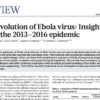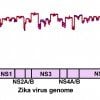Three pools of Aedes aegypti mosquitoes collected in Miami Beach on August 22nd and 23rd, 2016, were found to be infected with Zika virus. Through our collaborators, Scott Michael and Sharon Isern from Florida Gulf Coast University, we recently received samples of these mosquitoes for sequencing using our amplicon-based protocol for MiSeq. The Zika virus genomes sequenced from the mosquitoes are closely related to a Zika virus from a person suspected to have been infected in Miami and a virus sequenced from a traveler coming into Miami from Cuba (it is unclear where this person became infected).
This data provides evidence for Ae. aegypti transmission of Zika virus in Miami as a result of a single introduction, and perhaps the strongest evidence to date for the role of this vector in the current Zika virus epidemic in the Americas.
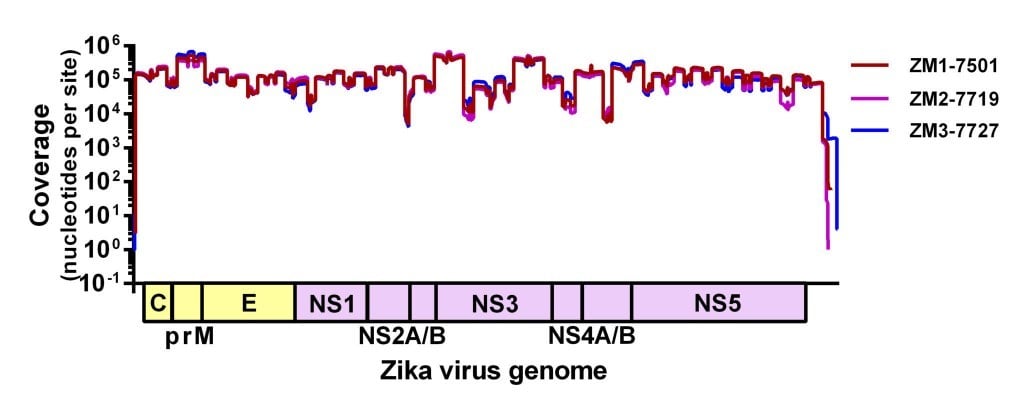
Figure 1. Sequencing coverage of Zika virus from pools of Ae. aegypti using our amplicon-based approach for MiSeq.
Samples
ID = ZM1-7501
Location = Miami Beach, Florida
Collection date = 2016_08_22
Mosquito pool = 39 adult Ae. aegypti collected using BG-Sentinel traps
4,563 ZIKV copies/μl RNA (9E6 copies total in pool)
ID = ZM2-7719
Location = Miami Beach, Florida
Collection date = 2016_08_23
Mosquito pool = 25 adult Ae. aegypti collected using BG-Sentinel traps
279 ZIKV copies/μl RNA (6E5 copies total in pool)
ID = ZM3-7727
Location = Miami Beach, Florida
Collection date = 2016_08_23
Mosquito pool = 15 adult Ae. aegypti collected using BG-Sentinel traps
22,549 ZIKV copies/μl RNA (5E7 copies total in pool)
Data
Our consensus sequences and analyses can be downloaded here. Raw data will be available shortly.
Protocol
We based our MiSeq protocol on the protocol developed by Josh Quick and Nick Loman and we are continuously updating it as we make improvements. You can read more here.
Preliminary analysis
We obtained ~7.5 million 250 bp Zika virus reads per sample, giving us a mean genome coverage of ~160,000 nucleotides per site (Figure 1). Previous cross-contamination issues have been mostly resolved as we only detected 346 reads aligning to Zika virus in our water controls. The Zika virus genomes obtained from the mosquitoes formed a distinct clade (strong bootstrap support) with a Zika virus sequenced from a Miami infection and a traveler returning to Miami from Cuba. The close relationship between the sequences suggests that 1) there is Ae. aegypti-borne Zika virus transmission in the Miami area, 2) the traveler from Cuba may have been actually infected in Miami, and 3) the outbreak was initiated by a single Zika virus introduction from the ongoing epidemic in the Americas. At this point, however, it is difficult to determine the exact origin of the introduced virus. More Zika virus data are needed to help resolve the tree.
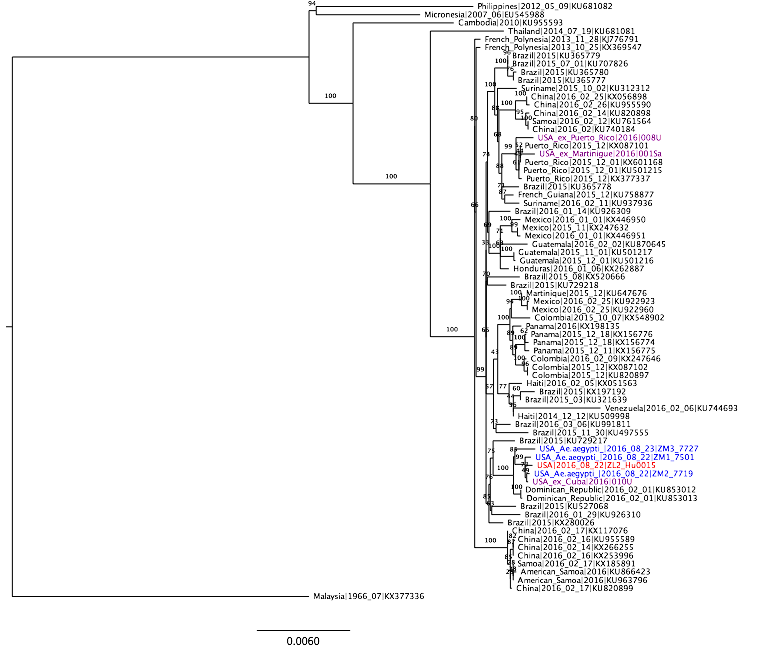
Figure 2. Zika virus tree was created using RAxML. Blue = Zika virus-infected Ae. aegypti collected in Miami Beach, red = suspected local human infection, and purple = suspected travel-associated infection.
Next steps
We have just received additional clinical samples from Florida Zika virus infections that will be sequenced in the next few days. Our collaborators at the Broad Institute are working to generate metagenomic sequencing data from the Ae. aegypti mosquitoes and clinical samples. Data from these samples will provide us with estimates of timing, dynamics, and migration of this just-beginning epidemic in Florida. Data will be made publically available as soon as the results are available.
Collaborators
Florida Gulf Coast University
Lauren M. Paul
Amanda Tan
Scott F. Michael
Sharon Isern
Florida Department of Health – Bureau of Public Health Laboratories, Tampa
Marshall Cone
Edgar Kopp
Kelly Hogan
Andrew Cannons
University of Miami
Diogo Magnani
David Watkins
Paola Lichtenberger
Mike Ricciardi
Varian Bailey
University of Birmingham
Josh Quick
Nick Loman
NextStrain
Trevor Bedford
Richard Neher
Broad Institute
Pardis Sabeti and Crew
Disclaimer
Please note that this data is still based on work in progress and should be considered preliminary. If you intend to include any of these data in publications, please let us know – otherwise please feel free to download and use without restrictions. We have shared this data with the hope that people will download and use it, as well as scrutinize it so we can improve our methods and analyses. Please contact us if you have any questions or comments – we’ll buy beers for #ResearchParasites that spot flaws and faults in the data and come up with improvements! Email us here.


